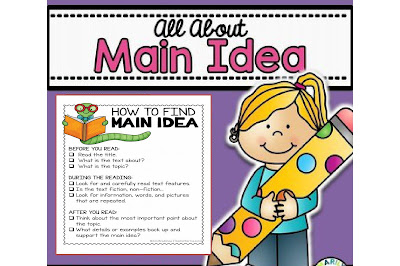Lesson Plan of Central (Main) Idea of Poems in English
Lesson Plan of Central (Main) Idea of
Poems in English
Grade V
Students` Learning Outcomes
- Write the central idea of a given poem in simple English language.
Information
for Teachers
- Many poems sound like songs when you read them aloud. This is because poems have a regular rhythm and repeated lines, words or sounds.
- Recall that if two words end in the same sound they are called rhyming words.
- They are used in poetry to provide musical effect.
- All poems may not rhyme.
- Every poem is also written around a central idea just like a paragraph.
- Central idea tells the main theme of the poem i.e. what the poem is about?
- While teaching the lesson, consult textbook at all steps wherein and whenever it is applicable.
Material
/ Resources
- A poem from the textbook, writing board, chalk/marker, duster
Introduction
- Bring in a copy of your favorite story to show to the class.
- Briefly tell students to share their favorite story with the class and describe what the story is about.
- Explain that the stories we have just discussed all have a main idea. Explain that just like stories have a main idea, poems also have a main idea.
- Explain that to find the main idea of a poem, a reader must read through the entire poem first.
- Read aloud a short poem to the students.
- After you have read the poem aloud, ask students to think about the subject of the poem who or what the poem is about.
- Tell them that sometimes, a poem`s title gives the reader a clue about the poem`s subject, but a title may or may not tell who or what is the subject of the poem.
- Good readers read the whole poem, with their title clue in mind, before determining the main idea.
- Next, find out what happens to the subject of the poem. Tell them to underline words or phrases that describe the action.
- Ask students to tell the poem`s main idea using information learned about the subject of the poem (including what happens to the subject and what it is like).
Development
Activity
1
- Before coming to class, you select a poem from the textbook to use in this lesson plan.
- Ask the students to open their textbook and find the poem.
- Read aloud the poem with proper intonation, emotion and variations in tone.
- Ask two to three students to come forward and read the poem aloud.
- Ask the students what the poem is about.
- Take all possible answers from students and write them on the writing board.
- Encourage them to give you an answer in complete sentence.
- Write the heading: Central idea.
- Discuss the central idea of the poem (As given in information for teachers section).
- Write the main words of the central idea of the poem on the writing board. Start with the sentence: This poem is about……
- Central idea of the poem should not be more than 3-4 sentences.
- Ask the students to write the central idea in their notebooks.
Activity
2
- Ask students to check their work, in pairs, for any mistakes in spelling, punctuation or handwriting.
Sum
up/ Conclusion
- Ask students: “How can we know the main idea of a poem? Students should respond that we should look at clues that a title give, then we should read the poem and look for who or what the poem is about. Next, we should look for information about what happens or the actions of the subject. Finally, use information about the subject and the action to understand the poem`s main idea.
Assessment
- Give students a short poem and ask them to write the main idea of the poem in one or two lines.
- Involve the students in solving the problems given in the exercise at the end of unit/chapter.
Follow
up
- Give students a short poem.
- Draw three columns on the writing board.
- Write subject on top of second column.
- Write actions on top of second column.
- Write main idea on top of third column.
- Ask students to copy the columns in their notebooks.
- Tell students to read the poem carefully and fill in the three columns.




Comments
Post a Comment